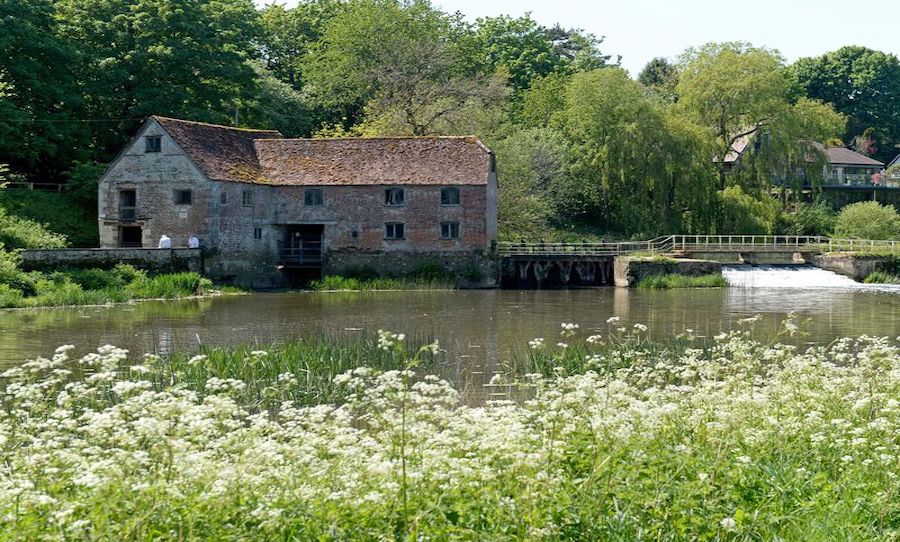As panic swept across the globe, we witnessed people all over the world begin fearing an apocalypse and stocking up on supplies in case of a long-term lock-down. Supermarket shelves were left bare of toilet paper, hand sanitiser, baked beans, pasta sauce, and flour, among other peculiar products.
In order to meet a huge spike in demand for flour in England over recent months, an 1000-year-old flour mill recently resumed commercial production for the first time in five decades.

The Sturminster Newton Mill of North Dorset has been around since 1016, but it’s the first time in 50 years that it has produced flour commercially.
After closing in 1970 and being converted into a museum, millers Pete Loosmore and Imogen Bittner have been producing just enough flour for tourist purchases about twice a month. However, after headlines were swamped with panic buying frenzies, the pair decided they could lend a helping hand.
Speaking about the decision to produce commercially, 79-year-old Loosemore told BBC News:
“When COVID-19 struck, all of the local shops ran out of flour very quickly. We had a stock of good-quality milling wheat and the means and skills to grind it into flour, so we thought we could help.”
The Sturminster Newton mill runs on a 25-horsepower water turbine which was installed over 1000 years ago. In April alone, the pair was able to ground more than one ton of wheat, more than twelve times their usual monthly production.
“[W]e have got through the whole of that ton in two to three weeks and we’re still chasing more and more grain. It’s been nice to bring the place truly back to life and back into something like it used to be when it was working six days a week.”
Sending flour to customers via the post, Loosmore and Bittner have sold hundreds of bags of artisan flour, with all money being invested back into the mill, which was suffering financially as a result of COVID-19 related restrictions on tourism. And while it appears to be a profitable decision to continue milling, Bittner believes its a short-term venture.
“We’re only doing this while the crisis lasts. [I]t’s not only helping us, but the local community because there is a shortage of flour. It’s like stepping back to an earlier way of life, where power was harnessed naturally and without pollution. It’s good to see that the old mill can rise to the challenge.”
Whether the mill keeps producing or not, it has been lovely to see such a traditional way of life prosper in difficult times, don’t you think?


